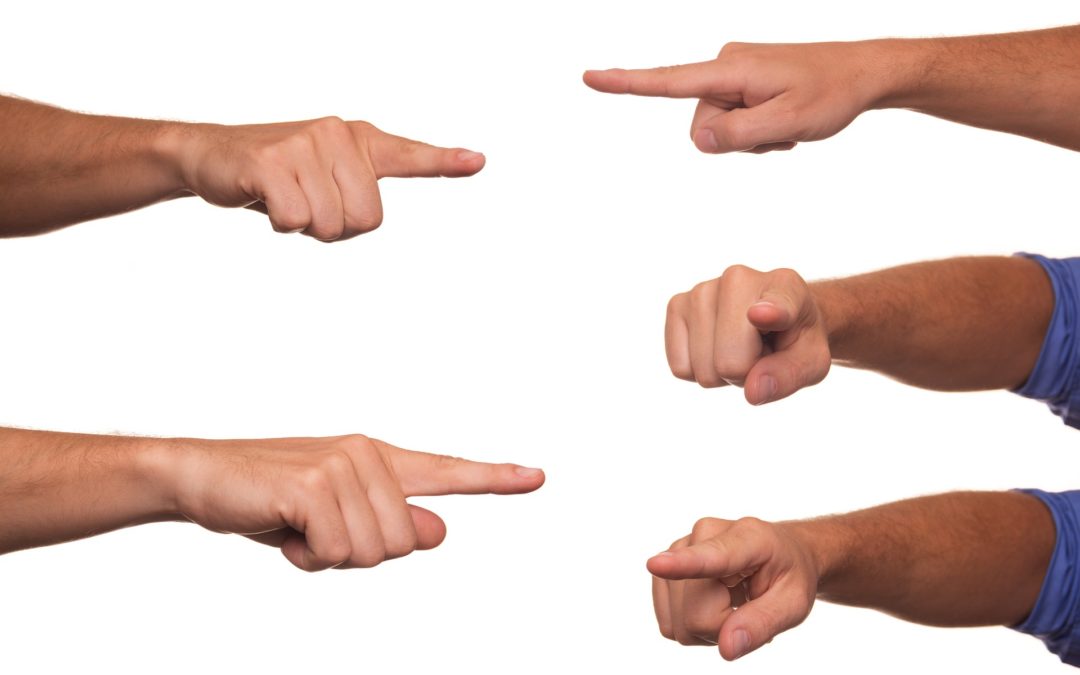By Rae Lynn DeAngelis
“My lord, let the blame be on me alone.” (1 Samuel 25:24a)
Several years ago, there was a popular situation comedy on television called Family Matters. One of the show’s main characters was Steve Urkel. His plaid shirt, high water pants, black rimmed glasses and spiffy suspenders said it all. Steve was an A+ nerd! Because Steve was very clumsy, nearly every episode included his infamous line, “Did I do that!”
At least the show’s quirky character made an attempt to accept responsibility for his actions, especially when his mistakes caused others grief.
Accepting blame is not a popular notion among mankind. No one really likes to admit when they are in the wrong—including me. And yet I have to believe that if every one of us accepted responsibility for our own mistakes or short comings, without making excuses or blaming others, it would definitely bring about positive change in the world.
Instead of blaming people or circumstances for making us late, why not accept responsibility, apologize, and allow for extra travel time in the future?
Instead of blaming parents, children, or siblings for our problems today, let’s recognize that we have a choice as to how we are going to handle things from this day forward. Positive change in our actions today will impact generations tomorrow. Instead of being bitter, let’s find ways to make it better.
Rather than blaming others because we are struggling with our job, marriage, family, church, or finances, perhaps we should reflect inward and acknowledge where our own deficiencies have contributed to these problems. We just might impart lasting change by re-adjusting our own attitude.
Shifting blame is not a new concept. In fact it’s been taking place since the very beginning of time. The first humans did the very same thing.
And [God] said… ‘Have you eaten from the tree that I commanded you not to eat from?’ The man said, ‘The woman you put here with me—she gave me some fruit from the tree, and I ate it.’ Then the Lord God said to the woman, ‘What is this you have done?’ The woman said, ‘The serpent deceived me, and I ate.’ (Genesis 3:11-13)
Adam blamed Eve—Eve blamed the serpent—and round and round it went.
God gave us free will, and with that free will we are given the freedom to choose how we will handle each moment.
“He will keep you strong to the end, so that you will be blameless on the day of our Lord Jesus Christ.” (1 Corinthians 1:8)
When we make a conscious effort to accept responsibility for our own blunders and offer grace when others do the same, we gain inner peace, freedom from the burden of guilt, and become truly blameless in the eyes of God.
“To the faithful you show yourself faithful to the blameless you show yourself blameless…” (2 Samuel 22:26)
“And this is my prayer: that [our] love may abound more and more in knowledge and depth of insight, so that [we] may be able to discern what is best and may be pure and blameless until the day of Christ, filled with the fruit of righteousness that comes through Jesus Christ—to the glory and praise of God.” (Philippians 1:9-11)








